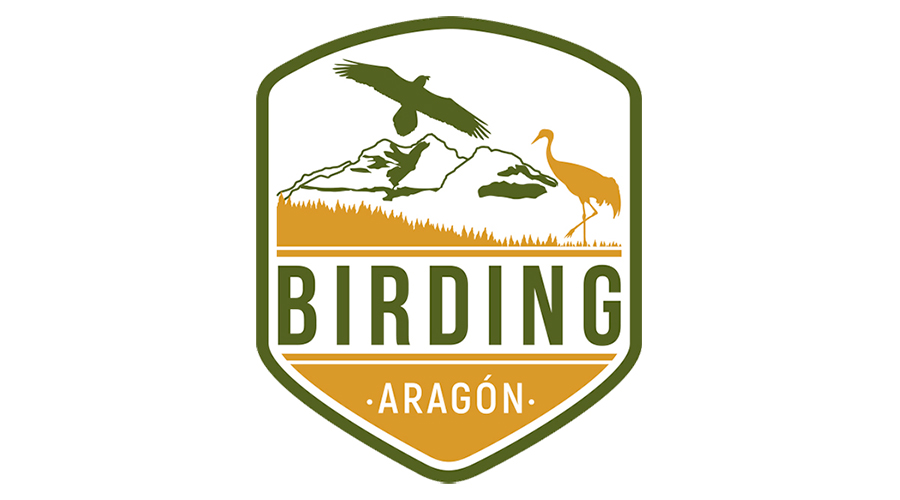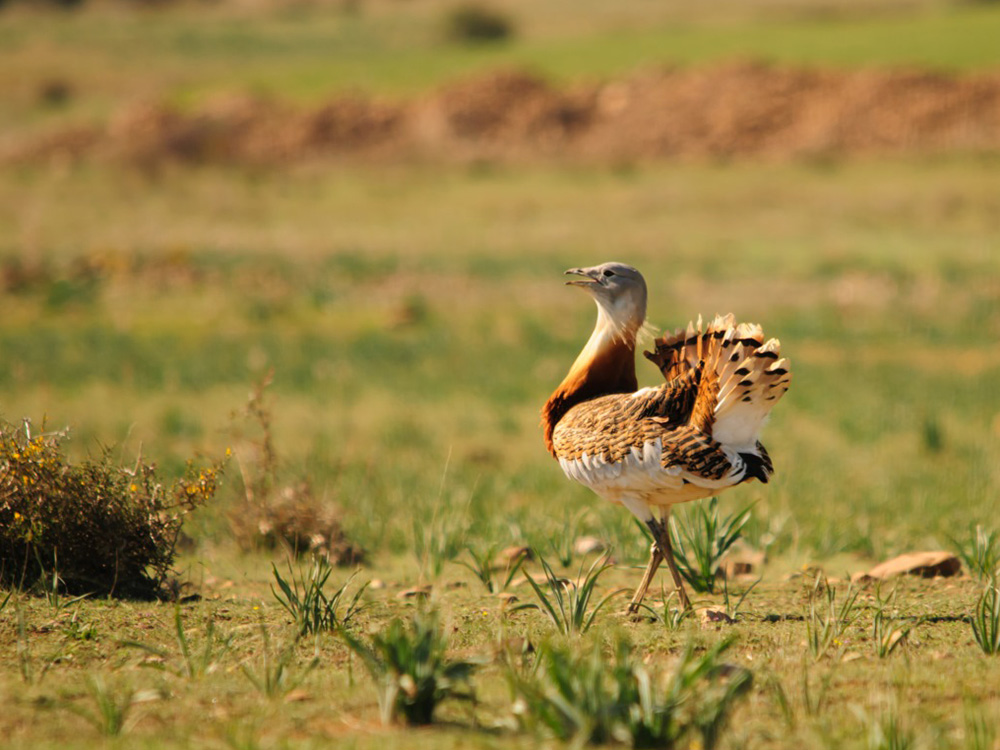Great Bustard
BIRDING ARAGÓNGreat Bustard
Otis late
ES: Avutarda común
Description
L: 75-105cm; W: 190-260cm;
It is the heaviest bird in Europe, very large with a gray head and neck; back brown with fine dark barring; white underparts; wing with white coverts and black and white flight feathers. Male in breeding plumage with large white ochretertiary “beards” and pectoral band with black margins at the tip, the innermost with black and tan bars; long white whiskers on the sides of the chin. In non-breeding plumage, both sexes similar without mustaches or pectoral band, if anything with whiter tertials and a more intense cinnamon back, female smaller than male. Juveniles with dark crown; back and lesser and median coverts with tan bars, narrower and duller than adult; narrow, buff-yellow tail feathers with two black bars; flight feathers narrower and less intensely black than in adult; primaries with more white at base and pale buff tip; secondaries tipped white; alula similar in color to primaries
- Observation difficulty: Hard
- Status: Resident.
- Optimal Season:Dec-Jan
- Conservation Status: In danger of extinction
- Hábitat: Steppe
Special interest
Best places to see in Aragón
PROVINCES
Huesca. Zaragoza. Teruel
REGIONS
Monegros y Bajo Cinca; Campo de Daroca y Jiloca; Comunidad de Teruel
Special Protected Areas (SPA)
CUENCA DE GALLOCANTA. ESTEPAS DE BELCHITE – EL PLANERÓN – LA LOMAZA. ESTEPAS DE MONEGRILLO Y PINA. LA RETUERTA Y SALADAS DE SÁSTAGO. SIERRAS DE LEYRE Y ORBA. LAGUNAS Y CARRIZALES DE CINCO VILLAS. SIERRA DE ALCUBIERRE. PARAMERAS DE BLANCAS. PARAMERAS DE CAMPO VISIEDO





